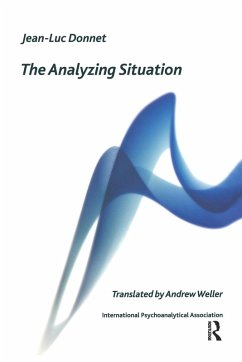
Psychopathology of the Situation in Gestalt Therapy
A Field-oriented Approach
Herausgeber: Spagnuolo Lobb, Margherita; Cavaleri, Pietro
Versandkostenfrei!
Versandfertig in 1-2 Wochen
153,99 €
inkl. MwSt.

PAYBACK Punkte
77 °P sammeln!
This collection explores the impacts and new ways of treatment of difficult clinical situations, in the uncertainty of a world in crisis, through a phenomenological and aesthetic field-oriented lens.














